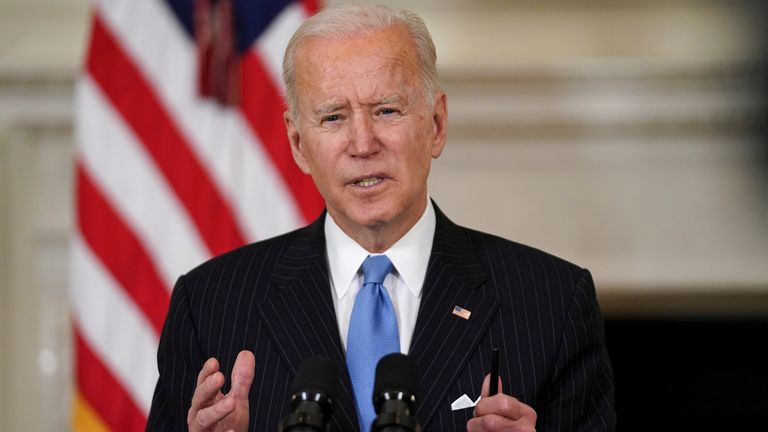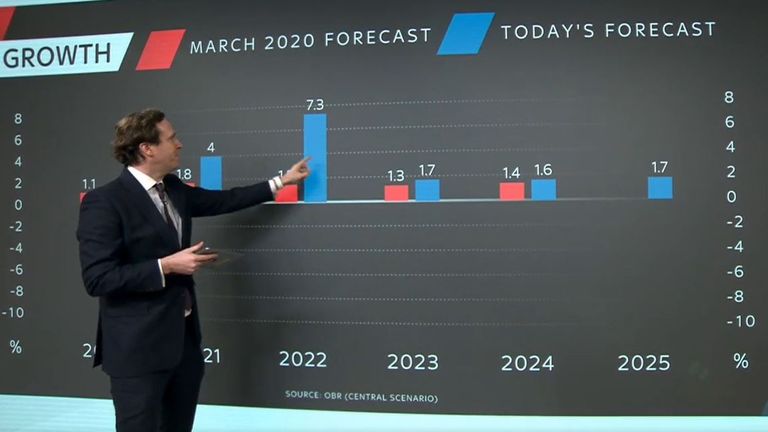The “vaccine effect” is boosting Britain’s economic prospects faster than other European countries, according to the Organisation for Economic Co-operation and Development.
EMBARGOED TO 1000 TUESDAY
The OECD, a club of developed economies, said it expected the UK’s national output to expand by 5.1% in 2021, some 0.9 percentage points higher than it expected in December.
It is a significantly bigger upgrade than the 0.3 percentage point increase for euro area economies, while both France and Italy saw their growth forecast downgraded for this year.
The Paris-based institution said: “The successful development and gradual deployment of effective vaccines has improved prospects for a durable recovery significantly, provided steps are taken to ensure that such vaccines are deployed fully throughout the world.”
The OECD also upgraded its forecast for US economic growth this year by 3.3 percentage points to 6.5%, in part due to the vaccine roll-out and in part due to the forthcoming fiscal stimulus from the new Biden administration.
It forecasts that global economic growth will hit 5.6% this year, taking the size of the global economy back to bigger than it was before the pandemic struck.
The organisation also upgraded the UK’s growth forecast for 2022 to 4.7%, stronger growth than the US or the euro area.
It said: “A more gradual upturn appears likely in the major European economies, reflecting continued containment measures in the early part of 2021 and more limited fiscal support, although the acceleration of vaccine deployment should help momentum to build, particularly in the United Kingdom.”
However the OECD added that there remained significant risks over its forecasts, including a slower vaccine roll-out and the possibility of the emergence of new more dangerous variants of COVID-19.
“The advanced economies, as well as vaccine suppliers such as China, India and Russia, also face potential risks from the spread of new mutations and the re-imposition of containment measures from the latter half of 2021, but face less near-term uncertainty about vaccine production and deployment, which is likely to be completed during 2021,” it said.
“All countries could face substantial repricing in financial markets, reflecting greater risk aversion, and weaker global commodity prices.
“In a scenario of this kind, global GDP growth could be lowered by close to 1 percentage point in 2021 and 1.25 percentage points in 2022 respectively, taking it to 4.5% and 2.75% respectively.
“Output would remain below the pre-crisis path for an extended period, raising the chances of long-lasting costs from the pandemic.”


